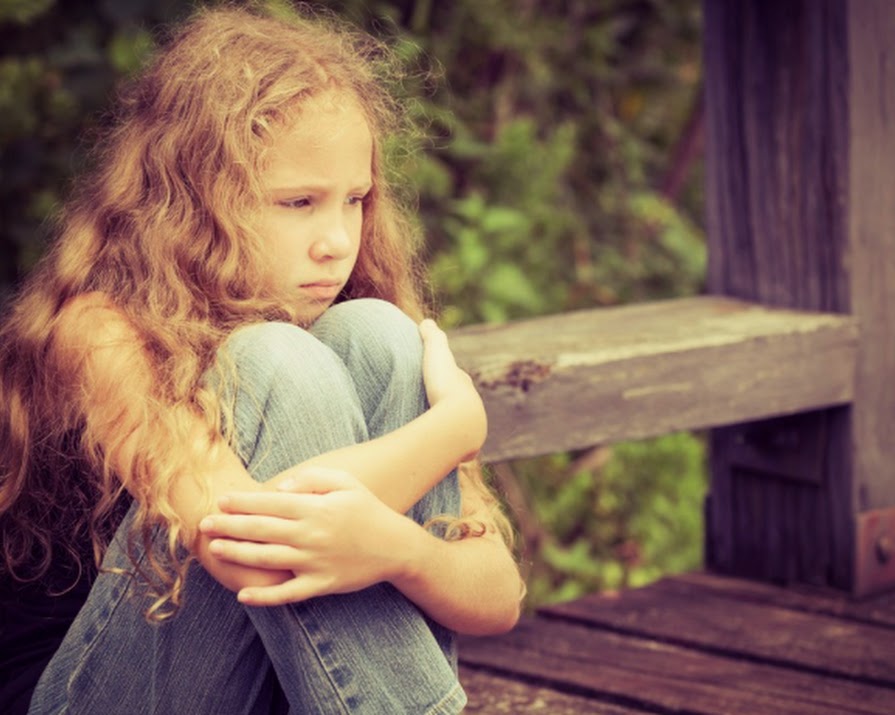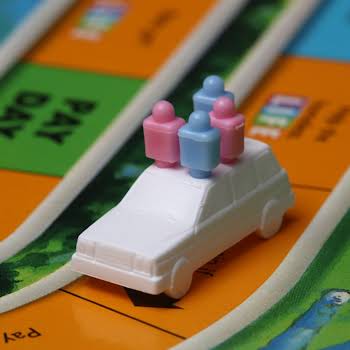
By Amanda Cassidy
27th Aug 2019
27th Aug 2019
We joke about wanting our children back in school because of the long summer break, but for some children the dread of returning to school is very real. Whether it’s classes getting mixed, new teachers or just the sight of uniforms, we look at how to calm an anxious child ahead of this week’s return.
Change is always hard. Even more so after the months of lazy breakfasts, days spent bug-hunting or mud-cake making, late nights and countless ice-creams that define the summer holidays for many children.
The transition into stiff uniforms (for some), early mornings, school routine and sitting still for five hours a day is naturally going to be hard. But for some children, it is about more than just adjusting, they build things up in their heads and the anxiety, when it comes to returning to a place that might not hold happy memories, can turn into something a little more serious.
Related: How to raise happy confident children
Having a panicked child is hard on everyone. Nobody wants to leave a crying child or to detangle yourself from your son or daughter who is very visibly anxious or who can’t sleep. The start of school is challenging for little ones, but in this case, any transition for children of any age can upset the balance – going from junior to senior school, starting a new school, dealing with the emotions when a friend might have moved school or having your primary school class mixed around are stresses in your child’s life that may need a little extra time to iron out.
“Encourage your child to know that should any difficulties arise, you as parents, will respond and manage it for them.
For most children the new-school-year worries fade and anxious behaviours are transient but the goal for parents is to be supportive without exacerbating your child’s worries.
A guiding hand
Colman Noctor is a child and adolescent psychotherapist with St Patrick’s Mental Health Services. He specialises in the treatment of emotional disorders in young people and has these tips for parents to help ease the worry for your child.
“Pitch the positives by reminding the child of their favourite aspects of school or the things that won’t change – the head-teacher, the yard, the after-school activities, the snuggles after school,” suggests Noctor. “It is really important to encourage the opportunity for new beginnings. Just because things were difficult last time or seem like they are going to be different this time around doesn’t mean it will be this term.”
“Don’t promise your child that everything will be ok.”
Noctor believes that although we want our children to be able to face things themselves, often they need a little helping hand at first. Let them know you are there for them.
“Encourage your child to know that should any difficulties arise, you as parents, will respond and manage it for them. Don’t promise that everything will be ok – it risks them losing faith in your predictions. But assure them that you are going to do your best and that you can share this issue together.”
My daughter’s going into third class and in her school they mix the classes around with the aim of preparing them for times in their lives when they will have to step out of their comfort zone, to make an effort to make new friends and to give them new perspectives. While it is undeniably hard on them, studies have shown that these types of shake-ups (at this age) can be beneficial.
New beginnings
While less likely to cry or fuss, some children (like my daughter) are more likely to go quiet, to ponder and silently fret. We try to keep the lines of communication open to combat any anxiety but at the same time, imagine when we were going to a new job or new course, it is nerve-wracking thinking of wanting to be liked, scared of not fitting in, the fear of isolation or simply of the unknown.
Noctor explains anxiety comes from overestimating a challenging and underestimating your own ability. He tells parents to “rationalise and add perspective to the challenge that lies ahead for them. Reinforce the child’s belief in their own ability to manage situations by reminding them of their past successes.”
“Be empathetic without being indulgent.”
It is also important to make sure we are not passing any anxiety onto them either. Don’t take on more commitments than the family can handle comfortably. This can cause a contagion effect that we should be careful of. Point out all the good things about getting back to the routine, the new responsibilities, the new positive events that are coming down the track.
Listen to your child and let them strategise about how they might handle things. Be empathetic without being indulgent. Even simple things like reminding them to ask another child their name or to try to find common interests. We have had practice at this all our lives but now it is about passing those tips to our children in a confident and ‘I-believe-you-can-do-it manner’.
I explained to my daughter this summer that some of my best friends came from shake-ups in my life. I told her how lucky we were to have the opportunity to add to our friendship group and that new things don’t always mean they have to be scary things.
Whether you have new-teacher fear, new-class fear or new-school fear, normalise these feelings for your child.
To sum up, some of the best advice is how we react to our child with a little bit of active ignoring, a little bit of positive attention and a lot of encouragement.
Image via Unsplash.com
Read more: The only parenting book you’ll need in your life
Read more: The five stages of bringing the kids to swimming lessons
Read more: The simple thing that helped me get a handle on my anxiety























